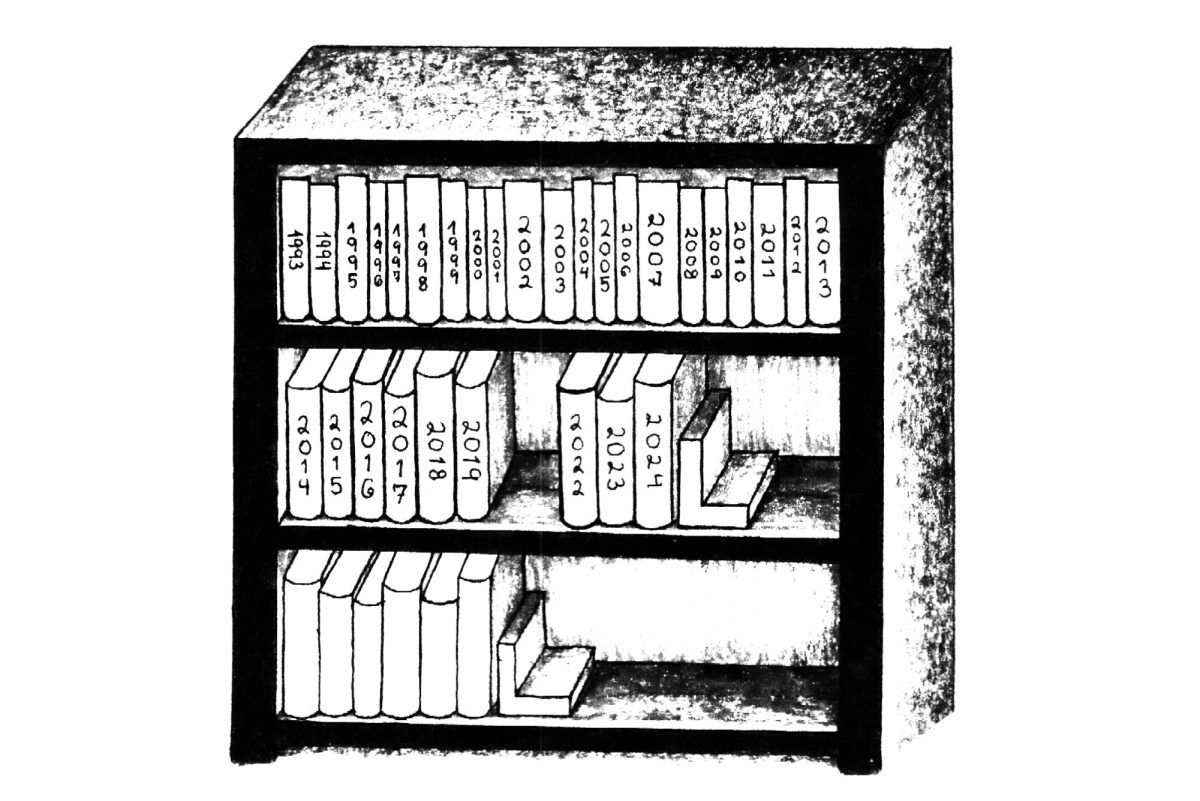Sabrina Soffer is an opinions writer and will be the commissioner of the Student Association’s Presidential Task Force to Combat Antisemitism.
Systemic ignorance of Judaism, Zionism and antisemitism at GW has enabled discrimination against Jews in the classroom and created fertile grounds for antisemitism at GW over the past few years. Bigoted notes and drawings of swastikas have appeared in residence halls. Holocaust revisionism and denial have been disseminated in classes. Mezuzot have been removed and damaged. A Torah scroll at the TKE house was desecrated last year. This fall, the GW Hillel building was vandalized and the site of an aggressive protest and it has been alleged that psychology professor Lara Sheehi was hostile toward Israeli-Jewish students.
The time has come to confront our campus’ cultural problem head on. The Student Association issued an executive order last month to create “The Presidential Task Force to Combat Antisemitism,” and, with the SA Senate’s vote next Monday, I will become commissioner. To ensure the protection of every student – including Jewish students – the task force will first propose an anti-bullying resolution drafted by the AMCHA Initiative – a nonprofit dedicated to documenting, investigating and combating antisemitism on U.S. college campuses. The “redefinition, denigration and suppression” of Jewish identity on campus violates GW’s policies and requires attention.
I plan to recruit 10 students to the task force by March 7 regardless of faith or ethnicity. The task force’s members will help create a comprehensive report about antisemitism at GW, research root causes of anti-Jewish bigotry, organize events and implement Jewish history and antisemitism as part of GW’s diversity, equity and inclusion trainings. Discussions between task force members and outside experts will help us understand how we can engage in civil discourse about these topics on campus.
As an Israeli-American and Jewish student myself, I’m grateful for campus organizations like GW Hillel, Chabad and Meor that hold weekly Shabbat dinners and other events where Jews can engage in cultural practices and conversations about our shared identities. But our Jewish peers hesitate to display their identities publicly on campus as a result of vitriolic attacks on their identity. Several of my Jewish friends have told me they conceal their Jewish symbols, like Star of David necklaces or kippot, when walking around campus past other students, some of whom have heckled and spit on them in class or in Kogan Plaza.
When violent, state-sanctioned, anti-Jewish riots known as pogroms broke out in 19th century Russia, Jewish poet Yehudah Leib Gordon wrote, “Be a man in the streets and a Jew at home.” Hiding shouldn’t be how we go about being Jewish at GW. Antisemitism has never disappeared into thin air – ducking our heads only ever exacerbates it.
As anti-Jewish bigotry and social justice rhetoric becomes normalized online and on campus, some Jewish students avoid conversations about Israel with non-Jewish peers and courses about the Middle East for fear of invoking distorted and inflammatory accusations about Jews. Some are so afraid of being singled out for their opinions and identity that they dread going to class. And when students struggle to eat or sleep and face depression due to constant denigration met with no accountability, there’s clearly a problem. Jewish students feel uniquely targeted by faculty who pledge not to discriminate against them and betrayed by an administration promising equal educational opportunities.
Several students have questioned the necessity of this task force to tackle antisemitism on campus given GW’s high proportion of Jewish students. A few Jewish students have even expressed that antisemitism is “normal.” To be clear, any form of hate is absolutely unacceptable. We should rally for the rights of Jews just as we would for the rights of all minority groups.
The task force will work with experts from Jewish organizations that track incidents of and provide education about antisemitism like StandWithUs, Jewish on Campus and others to unpack the evolution of antisemitism over the last millennia. The task force will engage in Zoom calls and workshops to educate themselves on the history of antisemitism around the world and its impact on various communities throughout history. Doing so will allow us to better understand how antisemitic tropes and harmful stereotypes about Jews can have deadly consequences in our modern social media age. Antisemitism is part of an ever-evolving conspiracy theory that falsely attaches Jews to loathsome qualities. Understanding it as such will enable the task force to determine what behavior constitutes antisemitism and hold people accountable for spreading such hate.
The task force will be committed to integrating Jewish students into the Office of Diversity, Equity and Community Engagement’s curriculum beyond the current resources on its website. These resources primarily address antisemitism in the context of Nazism, the Holocaust and white supremacy, but they fail to emphasize how anti-Zionist activism on campus can cross the line into antisemitism. I’ve reached out to the Shema Project, Hillel International and the Academic Engagement Network – organizations whose workshops help faculty, staff and administrators create a more positive environment for Jewish students and handle antisemitic incidents on campus.
We need to have difficult, intimate discussions about the state of antisemitism today. We need open conversations about topics like Zionism and anti-Zionism. The task force plans to use this dialogue to convey constructive messages to students, faculty and administrators about how to identify and respond to antisemitic incidents and heal the rifts in our community.
The whole point of college is to explore our distinct identities, beliefs and values – we can grow from one another’s diverse contributions and perspectives. We do not and will not always agree, but disagreement must never cross into denigration and suppression. Dialogue can exist where all can listen to each other, respect one another and work toward the common goal of our campus’ cohesion.
I encourage you to support this newly formed task force. I’m confident that it will set the precedent for future initiatives that can restore trust in our community.


